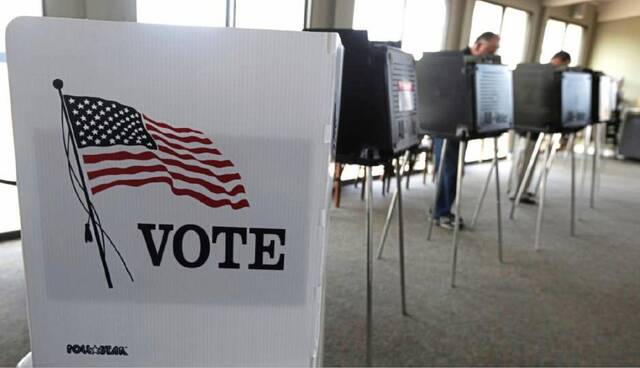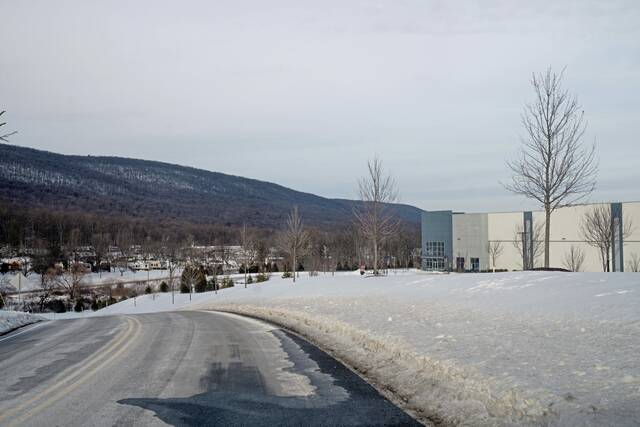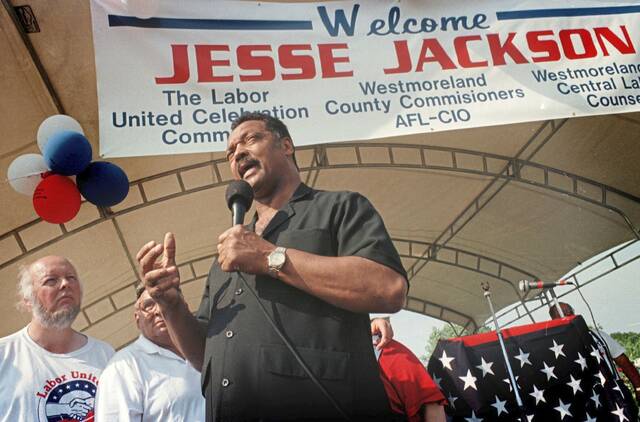Next year’s primary in Pennsylvania is scheduled to be held during Passover, and Pittsburgh’s Jewish community is raising alarms about how that could disenfranchise voters.
The state’s primary is scheduled for April 23. Passover starts at sundown April 22 and runs through April 30.
Passover has work, travel and other restrictions for observant Jews. Many local synagogues and Jewish spaces in Allegheny County also will be closed on the day of the primary and that could impact voting, said state Rep. Abigail Salisbury, D-Swissvale.
At least three synagogues in Pittsburgh and Jewish community centers in Squirrel Hill and Mt. Lebanon all typically house polling places. Officials from Rodef Shalom Congregation in Oakland said that building will remain open for voting on April 23.
She lamented the state Legislature’s inability to change the primary date, and said if bills aren’t passed in the upcoming December session, then it will be too late to change the date.
Salisbury, who is Jewish, said legislative progress on the issue has stalled.
“We are just stuck right now,” she said. “There were four states affected by this issue, and Pennsylvania is the only one not to take care of it. We are really down to the wire.”
Rebecca Elhassid, 39, of Squirrel Hill said the issue is causing anxiety in Pittsburgh’s Jewish community. She said dozens of people have sent letters and made phone calls to lawmakers in hopes of getting them to change the primary date. Salisbury said she also brought several Jewish residents to Harrisburg on Monday to lobby for the change.
Elhassid said failing to move the primary date to avoid a Passover conflict would set a bad precedent for any group that has a religious or cultural conflict with future election dates. And for Pittsburgh Jews, she said, there is a strong desire for action to be taken in the wake of a string of antisemitic incidents in the city.
“We don’t want to be disenfranchised in any election, and right now there is even more of a desire to make sure our voices are heard,” Elhassid said.
But it’s unclear if the Legislature can move the date since Democrats and Republicans have been disagreeing on an alternate date.
Senate Majority Leader Joe Pittman, R-Indiana, said the Republican-controlled Senate passed a bill with bipartisan support to move the primary to March 19. Democrats in the House then altered that bill to move the primary to April 2.
Critics have said a shift to March 19 is too big of a move from the typical primary, while others said April 2 is too close to Easter and will cause problems with county election departments to move voting machines into polling places at churches.
Salisbury said there is an effort to pass a bill that would move the primary to April 16. A bill to do so narrowly passed the Democratic-controlled state House. She said she is hopeful the Senate will pass that bill during its December session.
Pittman didn’t respond to questions about moving the primary to April 16 but said at this point his support for moving the date is mostly predicated on the County Commissioners Association’s opinion. That group, which represents county governments, said last month it is too late to move the primary.
“So long as the County Commissioners Association continues to oppose moving the date, it is hard to see how we can attempt any further changes at this point,” Pittman said.
Elhassid said legislators are finger-pointing instead of figuring out how to move the date. She said if the date isn’t changed it is Jews in Pennsylvania who will suffer, along with other voters who typically vote in polling places in Jewish spaces.
Elhassid said she understands that polling places at the Jewish spaces can be moved, but said that is not as ideal as moving the date so observant Jews can vote in person and other less-engaged voters won’t be surprised by their polling place being relocated.
The vast majority of Allegheny County’s more than 1,300 polling places stay the same from year to year, but it’s typical for more than a dozen to change locations each election. The county has not yet sent out election information to potential polling places.
Salisbury said she recognizes that mail-in voting provides observant Jews and others the opportunity to vote before Passover, but that still comes with potential issues for Jews if their mail-in ballots don’t arrive before Passover. During the first two days of Passover, there are restrictions on Jews writing, making it difficult to fill out and sign a ballot.
She also said that Jewish candidates will be hurt by the date. Passover means they won’t be able to campaign the day before and the day of the election, which she said can be a crucial time for canvassing.
“It sets a really dangerous precedent to say that a certain religious group does not need to have the same voting access as other groups,” Salisbury said.








